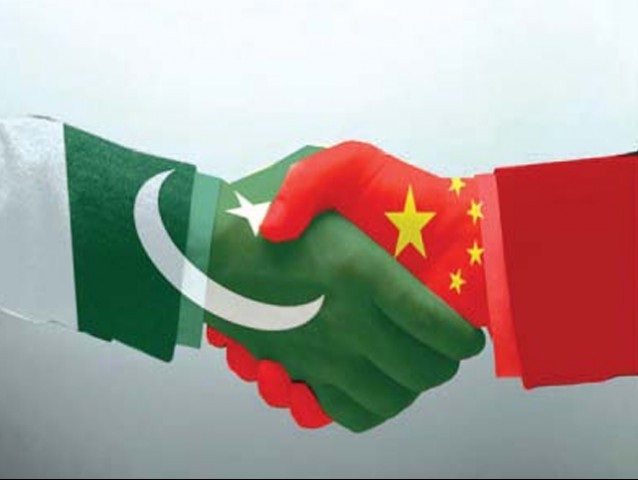| ||||||||
The following is research published today from MEMRI’s Special Dispatch Series and the MEMRI TV Project.
Special Dispatch No. 3858—South Asia Studies Project/Pakistan Pakistan's Inter-Services Intelligence (ISI) Criticized By Pakistani Commentators for Escaping Accountability on Bin Laden Issue
Following the killing of Al-Qaeda leader Osama bin Laden in a unilateral U.S. operation in the Pakistani city of Abbottabad, there was disbelief in Pakistan that the Pakistan Army and its Inter-Services Intelligence (ISI) had not known of bin Laden's presence in Pakistan. There was also anger against the Pakistan Army and the ISI for their failure to prevent the U.S.'s violation of Pakistan's sovereignty in the operation. Some analysts called it an intelligence failure, as a way of deflecting criticism of the ISI. At a request of Pakistan Army Chief General Ashfaq Kayani, on May 13, 2011, a closed-door, joint session of both houses of the Pakistani parliament was called; in it, ISI chief Lt.-Gen. Shuja Pasha answered queries from Pakistani lawmakers. General Kayani and Lt.-Gen. Pasha are currently the most powerful arbiters of power in Pakistan, and are also seen to be dictating Pakistan's foreign policy on Afghanistan, the U.S., Kashmir and India. The Pakistan Army and ISI have virtually ruled Pakistan over the past several decades. The move to call a joint session of Pakistani parliament on the issue of the unilateral U.S. operation was seen as ISI's efforts to wriggle out of the difficult situation following the killing of bin Laden. It also offered a unique opportunity for the country's civilian leadership to ensure the subordination of the military and the ISI, which is seen as the mother of all Pakistani intelligence agencies, to the civilian government. However, the current government led by Prime Minister Yousuf Raza Gilani, which has been under numerous pressures from the military, has sided with the military. Nevertheless, Nawaz Sharif, the country's former prime minister and opposition leader, has stressed the need to restrain the role of ISI in Pakistani politics and in the making of Pakistan's foreign policy. Following the joint session, a number of Pakistani writers stressed that Pakistan should abandon its dual policy of supporting some militant groups while fighting the war against terror, thereby giving a fundamental positive direction to the country's future. In an editorial titled "The Game Is Up," the liberal newspaper Daily Times argued that the Pakistani military can no longer play its "usual double game" of supporting militant groups. It also called for parliamentary scrutiny of the military and ISI budgets. In an editorial titled "In the Eye of the Storm," the right-wing The Nation daily, as a way of expressing its support for the military, argued that the top military brass had presented itself for accountability. However, renowned commentators and columnists, such as Aamer Ahmed Khan, Marvi Sirmed and Kamran Shafi, argued that the ISI chief, Lt.-Gen. Shuja Pasha had escaped accountability while the politicians supported the military leaders in the so-called national interest. In an article titled "This Affair Ain't Going Anywhere," Aamer Ahmed Khan argued that if Osama bin Laden was in Abbottabad for five years, as claimed by the U.S., General Kayani too is accountable, as he was ISI chief prior to Lt.-Gen. Shuja Pasha. In an article titled "I Am All Yours, Says the ISI," Marvi Sirmed criticized political parties for supporting the military and intelligence agencies blindly. In an article titled "The Truth Is Out," Kamran Shafi called for "disgorging" all the militant groups. To read the full report, visit http://www.memri.org/report/en/0/0/0/0/0/0/5309.htm.
Special Dispatch No. 3857—South Asia Studies Project/Pakistan/China/U.S. and the Arab & Muslim World Editorials in Pakistani Dailies Examine Pakistan's Deepening Alliance with China as a Counterweight against U.S. and India
Pakistani Prime Minister Yousuf Raza Gilani took a four-day trip to China from May 17-20, 2011. Although the visit was planned much earlier to mark the 60 years of Pakistan-China friendship, it acquired unprecedented importance in international relations following the May 1 killing of Al-Qaeda leader Osama bin Laden in a unilateral U.S. operation in Pakistan's Abbottabad city. The Abbottabad operation was seen in Pakistan and internationally as a violation of Pakistan's sovereignty, as the U.S. carried out the operation without informing the Pakistani leaders. Soon after the operation, China issued statements of support for Pakistan and praised its role in the war against terror. During Gilani's May 17-20 visit to Beijing, Chinese leaders also asked the U.S. to respect Pakistan's sovereignty and appreciate its role in the war on terror. Pakistan has been a longstanding ally of China, but has in recent years been deepening the relationship. This strengthening of Chinese-Pakistani ties is being seen as an attempt to undercut the influence of the U.S. and India in Afghanistan and wider South Asia. In a series of editorials excerpts below, various Pakistani newspapers wrote about Prime Minister Gilani's visit to China and its implications for Pakistan, the U.S. and India. To read the full report, visit http://www.memri.org/report/en/0/0/0/0/0/0/5307.htm.
Special Dispatch No. 3856—South Asia Studies Project/Pakistan/Women's Topics Outspoken Pakistani Actress Veena Malik Injured In Attack on Her Car
Noted Pakistani actress Veena Malik, who confronted an Islamic cleric in a live debate on Pakistani television early this year, was injured when the car she was riding in was attacked while travelling from the Pakistani capital of Islamabad to Lahore on the night of May 16, 2011. Malik is a renowned Pakistani actress, model, social worker, and television anchor. She has played lead roles in a number of box-office hits produced in Urdu and Punjabi languages over the past decade in Lollywood, Pakistan's film industry. In recent years, she has hosted television shows on Pakistani and Indian television channels, becoming a household name across Pakistan and India as well as among the south Asian diaspora community in the United States. To read the full report, visit http://www.memri.org/report/en/0/0/0/0/0/0/5306.htm. | ||||||||
Tuesday, 24 May 2011
Posted by
Britannia Radio
at
05:48
![]()

























